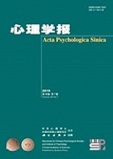|
|
EFEECTS OF STRATEGY TRAINING IN WORD RECALL OF THE AGED
Sun Chang-hua,Xu Shu-lian,Li Rong-ping Institute of Psychology, Academia Sinica Beijing Institute of Neurosurgery
1989, 21 (01):
49-56.
Using free recall of words and free recall of charaeters, and associa-
tion learning as three experimental tasks, categorizing rehearsal method,
association method and association making method were applied to these
tasks respectively to conduct memory training research. Subjects were 60
elderly (mean age: 66.5 years old) and 40 younger adults (mean age:
26.8 years old). Both were divided into a training group and a control
group, according to the performances of pretest, age and educational le-
vel of Ss. The results were as follows:
1. The memory performances of the elderly group were significantly
poorer than those of the younger group.
2. After training, the memory performances of both training groups
improved obviously.
3. The elderly training group performed as well in the post-test as
the younger group did in the pre-test, and the differences decreased as
compared with the younger group.
4. The subjects used memory strategies increased significantly both
in the elderly and in the young, however, the good user were still less
in the former group. The subjects' performances were highly correlated
with whether they used suitable memory strategies or not.
5. Not looking for strategy actively is an important phenomenon of
the encoding defect of information in the elderly, this defect can be im-
proved through training. Encoding defect might only be one of the reas-
ons in memory inefficiency of the elderly.
Related Articles |
Metrics
|




